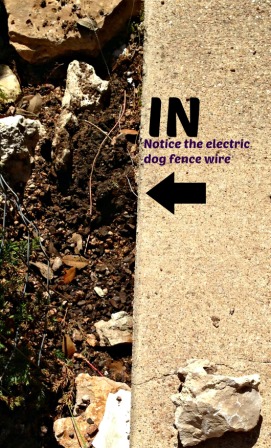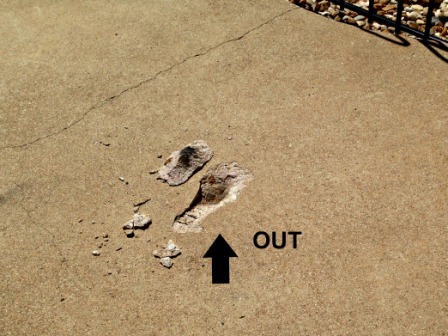Recently, my husband and I experienced a lightning strike very close to our house – too close! The loud boom shook us awake at 2am, and in fact the vibration threw art work and a vase to the floor. All we knew at the time was that it knocked out our electricity, so we comforted our scared little dogs and went back to sleep. The next morning we discovered the lightning had struck near a metal fence and exited our driveway a few feet from our bedroom window. It fried my computer, damaged the water heater, destroyed landscape lights, blew fuses and completely blew apart cable boxes both on our house and on the power lines hanging above the street. It took the cable providers almost a week to figure it all out and make all the repairs. Our neighbors, which are one and two lots away, lost big screen TVs, gaming devices and had major damage to septic systems. Now when a cloud floats over, we unplug everything and run for cover! So I decided to do a little research on protecting your home from lightning.
First there is no way to prevent lightning from striking, but there are ways to direct it to ground – thank you Benjamin Franklin! Building code requirements are there to protect structures or at least greatly reduce the damage from a strike. Of course no one has the ability to stop Mother Nature and her 30 million volts at the temperature of the sun! Lighting can strike anything; trees, fences, grass, people! Lightning can enter a home through plumbing, water or wiring and don’t forget about those items installed after the home was built – security systems, electronic dog fences, exterior lighting and security gates.
So how do we protect our homes?
- Use surge protectors. Don’t mistake power outlets for surge protectors and purchase good ones – your electronic devices are worth it. Also check out whole building surge protectors.
- Consult an electrician to make sure your home is grounded properly. Preferably all connections, cable-telephone-electric are grounded together and enter the house within 10 feet of each other.
- There are businesses out there that offer lightning protection systems. One site recommended contacting your electric company to find out what level of protection was recommended for your area. I called mine and they are researching it – guess it’s not a question commonly asked. I found another site that uses zip codes to indicate the risk factors. The risk in my area are Flood, Hail, Tornado and Wildfire but no hurricanes, high winds, earthquakes, freezing weather or lightning. Humm… not sure how reliable that site is.
- Most importantly, protect yourself during a lightning storm: Stay indoors and distance yourself from windows and doors. Don’t use electrical devices like corded phones and desktop computers and don’t touch plumbing (your grandmother was right).
This is just a few suggestions since I’m sure there are plenty of other ways to protect life and home during a lightning storm. As for me; I won’t stay on the lake when it rains anymore or shower during a storm, I’ll buy better surge protectors for use when I’m not home, and when I am I’ll unplug and say a little prayer.
Stay safe everyone!!



